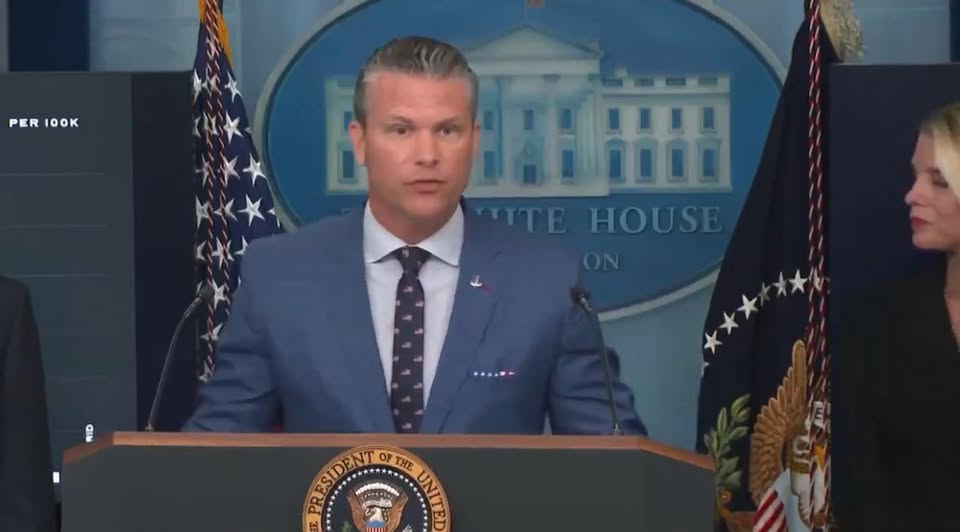Discover how Pete Hegseth leads National Guard operations in Washington, D.C., enhancing military readiness and community support. Learn more about his initiatives.
Introduction
Pete Hegseth Leads National Guard Operations in DC: A Closer Look
In times of national unrest and heightened security concerns, the deployment of the National Guard often becomes a focal point. Recent events in Washington D.C. have seen Pete Hegseth, a prominent figure known for his military background and media presence, taking a leadership role in National Guard operations. This development has sparked considerable discussion, raising questions about the nature of these operations, Hegseth’s qualifications, and the broader implications for civil-military relations.
Understanding the Context of National Guard Deployment in D.C.
Washington D.C., as the nation’s capital, holds unique significance and is often the site of large-scale protests, demonstrations, and national security events. The National Guard, a reserve component of the United States Armed Forces, can be activated by either the state governor (in the case of state National Guard units) or the President of the United States (in the case of the D.C. National Guard). Their deployment in the capital typically occurs to support local law enforcement, maintain order, and protect critical infrastructure when civilian authorities are overwhelmed or require additional resources.
The specific circumstances leading to Pete Hegseth’s involvement likely stem from his established connections within conservative political and media circles, coupled with his prior military service. While details regarding the precise nature of his leadership role may not be widely publicized, it’s plausible that he is serving in an advisory or liaison capacity, leveraging his experience to facilitate communication and coordination between different entities involved in security operations.

Pete Hegseth’s Background and Qualifications
Pete Hegseth’s public profile is multifaceted. He is a Fox News host, a political commentator, and a veteran of the Iraq and Afghanistan wars. He served in the U.S. Army National Guard before joining the active duty Army. His military background includes infantry service and deployments to conflict zones, providing him with firsthand experience in operational environments.
However, it’s crucial to distinguish between his military service and any specific qualifications for leading National Guard operations in a domestic security context. While his military experience offers a foundation in leadership, logistics, and strategic thinking, the nuances of civil-military operations within U.S. borders require a distinct understanding of legal frameworks, rules of engagement, and coordination with civilian law enforcement agencies.
Scrutiny and Discussion Surrounding Hegseth’s Role
The involvement of a media personality with strong political affiliations in National Guard operations inevitably draws scrutiny. Concerns may arise regarding the potential for politicization of the military, the blurring of lines between media advocacy and official duties, and the appropriateness of individuals with overt partisan leanings holding leadership positions in sensitive security matters.
Conversely, supporters might argue that Hegseth’s military background and understanding of security challenges make him a valuable asset in certain advisory or liaison roles. They might emphasize the importance of effective communication and coordination during complex operations, suggesting that individuals with experience navigating different spheres (military, media, and politics) can contribute meaningfully.
The Broader Implications for Civil-Military Relations
The situation in D.C. underscores the delicate balance inherent in civil-military relations. The Posse Comitatus Act generally prohibits the use of the U.S. military for domestic law enforcement purposes. However, exceptions exist, and the National Guard, when operating under state authority or specific federal exceptions, can play a support role for civilian authorities.
The involvement of figures like Pete Hegseth, who occupy prominent positions in both media and potentially in an advisory capacity within military operations, raises questions about transparency and accountability. It highlights the need for clear guidelines and public understanding regarding the roles and responsibilities of individuals involved in National Guard deployments, particularly in politically charged environments.
Conclusion: Navigating the Complexities of National Guard Leadership
Pete Hegseth’s involvement in National Guard operations in Washington D.C. is a noteworthy development that reflects the complex interplay of military, political, and media spheres in contemporary society. While his military background provides a foundation of experience, the specifics of his role and the broader implications for civil-military relations warrant careful consideration. Open discussion and transparency are essential to ensure that the deployment of the National Guard in domestic situations remains within established legal and ethical boundaries, serving its intended purpose of supporting civilian authorities without compromising the principles of civilian control of the military.
